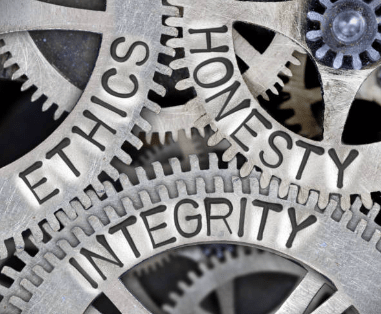Ethics is at the core of digital forensics, guiding professionals in investigating cybercrimes, data breaches, and other cases involving electronic evidence. As a field dealing extensively with sensitive information, digital forensics demands adherence to ethical standards to ensure that findings are credible and reliable. This article explores the fundamental ethical issues that shape the practices of digital forensics experts.
Privacy and Confidentiality

- Private Information Protection: Forensics investigators will likely encounter personal and private information, personal data, financial information, and personal communications. Guidelines of ethical practice call attention to the respect for individual privacy and the right access only to data needed to carry out the investigation. Such data should be held confidential.
- Data Minimization: The investigator must demonstrate data minimization, whereby they collect only that information that is necessary to conclude the investigation to minimize privacy invasions.
Compliance with the Law
- Adherence to Laws and Regulations: In this regard, the digital forensics professionals need to work strictly as per the law and must not breach any other law dealing with data security and cybercrime, in this case, the IT Act of India and the GDPR in the EU. This could mean that unauthorized access to data, alteration or manipulation of evidence can cause legal consequences and compromise the very investigation.
- Chain of Custody: In the light of the court’s acceptance of this evidence, an unbroken chain of custody is assumed indispensable. All the evidence handing, transfer, and storing should be recorded with much detail so that it would be proved intact through all the steps of the process of investigation.
Objectivity and Impartiality
- No Bias: The person doing digital forensics should have no bias and be impartial in the investigation. His duty is to uncover the facts, regardless of who would benefit from them.
- Objective Reporting: What is reported as evidence has to be factual and with no exaggeration or omission. The professional has to give accurate and objective findings, even if the evidence does not support the assumptions or initial findings of the investigator.
Competency and Due Diligence
- Continuous education and training: It is inevitable, as technology and threats continuously change. The professional is likely to fail acquiring the latest tools, techniques, and best practices when the knowledge becomes outdated while completing investigations or reaching the correct conclusions.
- Detailed Method: Ethical investigators have a valid and reproducible methodology applied to both data collection and analysis so that the same findings derived from the investigation are able to be rederived and verified by anyone for their own purposes if that were needed.
Avoidance of Conflicts of Interest
- Declaration of affiliation: Any financial, personal, or professional connection affecting the independent nature of an investigation is declared or avoided.
- Declining Specific Cases: In case an investigator’s impartiality can be challenged on account of a conflict of interest, it is morally right to decline the case or refer it to an unbiased third party.
Evidence Integrity Preservation

- Non-Tampering Policy: The forensic practitioner does not tamper with or delete any data and digital evidence in the course of the investigation. Any alteration or loss of evidence would be adverse to the case and the credibility of the investigation.
- Write-Blockers: Write-blockers are often applied in digital forensics; they ensure that evidence is not altered during the analysis. This ensures that data remains intact and credible for judicial processes.
Ethical Use of Tools and Techniques
- Authorized Software and Licensing: Using unauthorized or pirated software not only breaches ethical standards but can also lead to legal complications and affect the accuracy of the findings.
- Transparency in Techniques: Investigators should employ widely accepted and legally defensible methods for gathering and analyzing digital evidence. Experimentation with unproven methods can introduce biases and inaccuracies.
Accountability and Reporting
- Transparency in Documentation: It is essential that digital forensic investigations are documented clearly for accountability purposes. All activities, whether data acquisition, analysis, or reporting, should be documented to ensure a trail of transparency for review.
- Truth in Testimony: Forensics experts are frequently brought into court to testify. They have an ethical obligation to communicate findings truthfully and understandably, avoiding technical jargon that might obscure the facts.
Respect for All Parties Involved
- Sensitivity to Potential Victims : Digital forensics may reveal information about persons of no interest, especially in device-related cases or shared access networks. Only professional investigators reveal information concerning people of no interest when absolutely necessary.
- Communication with Stakeholders: Where appropriate, investigators should engage in professional communication with all parties of stakeholders involved, whereby they explain the scope and purpose of the investigation and outline the potential outcome of findings.
Conclusion
With all ethical considerations, this protects the integrity of digital forensics and establishes and increases public trust in these analyses. Thus, when properly governed by standards about issues related to privacy, law, objectivity, and regard for others, forensic cyber analysis contributes to an equity of justice and makes sense through a justifiable method of investigation.


